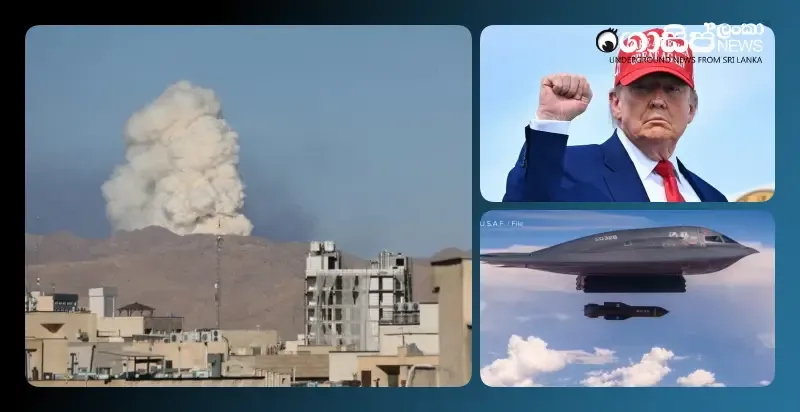US Strikes Iranian Nuclear Sites as Tehran Promises Retaliation and Trump Declares Mission Accomplished
Iran Vows to Respond to US Airstrikes
Iranian President Masoud Pezeshkian has condemned the recent US airstrikes on three of Iran’s nuclear facilities, saying the United States "must receive a response for their aggression." Speaking publicly, he warned that the attacks will not go unanswered. Iran’s foreign minister added that while physical sites may be damaged, Iran’s nuclear knowledge "cannot be destroyed by bombing."
Iranian President Masoud Pezeshkian has condemned the recent US airstrikes on three of Iran’s nuclear facilities, saying the United States "must receive a response for their aggression." Speaking publicly, he warned that the attacks will not go unanswered. Iran’s foreign minister added that while physical sites may be damaged, Iran’s nuclear knowledge "cannot be destroyed by bombing."
Trump Claims Success: “We Took the Bomb Out of Their Hands”
Former President Donald Trump said the strikes successfully disrupted Iran’s nuclear ambitions. “We took the 'bomb' right out of their hands,” he stated, framing the operation as a strategic blow to Iran’s nuclear program. The attacks targeted key enrichment facilities at Natanz, Isfahan, and the underground complex at Fordo.
Satellite Imagery Shows Widespread Damage
BBC Verify analyzed new satellite images showing significant destruction at the Natanz and Isfahan nuclear facilities. The Fordo site, built deep underground, remains difficult to assess. The UN’s International Atomic Energy Agency (IAEA) has confirmed it is unable to verify the extent of the damage at that location due to lack of access.
Iran’s Enriched Uranium Stockpile Under Scrutiny
According to the IAEA, Iran has accumulated around 400 kilograms of uranium enriched to 60 percent purity—a level that is close to weapons-grade, which begins at 90 percent. A senior Iranian official told Reuters that most of the uranium at the Fordo site had already been relocated before the strikes. When asked about the current location of the uranium, Israeli Prime Minister Benjamin Netanyahu said, “We’ve been following that very closely... we have interesting intel on that,” but declined to provide specifics.
Ongoing Iran-Israel Military Clashes
In the aftermath of the US strikes, tensions between Iran and Israel have escalated further. Israel claims it has struck dozens of military targets across Iran. Meanwhile, the Iranian Red Crescent accuses Israel of targeting hospitals and medical facilities. The conflict is intensifying on multiple fronts, raising concerns about a broader regional war.
US Says Goal Is to Stop Nuclear Weapon, Not Regime Change
US Defence Secretary Pete Hegseth clarified the motive behind the strikes, stating that the goal was not to change Iran’s leadership but to prevent it from obtaining a nuclear weapon. “This was about stopping a serious threat, not regime change,” Hegseth said.
IAEA Left in the Dark, International Concern Mounts
The IAEA has not yet been able to verify the damage at the Iranian sites independently and is calling for access. Global powers are urging restraint as the situation threatens to spiral into a wider conflict. The UN Security Council is expected to convene an emergency meeting to address the growing crisis.
Key Questions Moving Forward
Will Iran retaliate directly or through allied groups?
Where is Iran’s 60% enriched uranium now stored?
Can the IAEA resume inspections and verification?
Is there still a path to diplomatic de-escalation?
![Gossip Lanka News [English] Gossip Lanka News [English]](https://blogger.googleusercontent.com/img/a/AVvXsEhYm2aFFq-bIW1nWX-RrqnPFoIsVos6_VCVz8BpLt0QJi55GNXHXC2fugeRvL0qUStEuCfs7Sfu6ZiSlhrkldxfGuE_wzy5gitY6rMZ2KSi8VBbGvkgXLks37RwZV-4-HKbWiNLRxB8C_r1e4z3mpxFTMPDJPEADoG8E-bZteWFipeD5KNGbjvCfqEfKw=s300)
